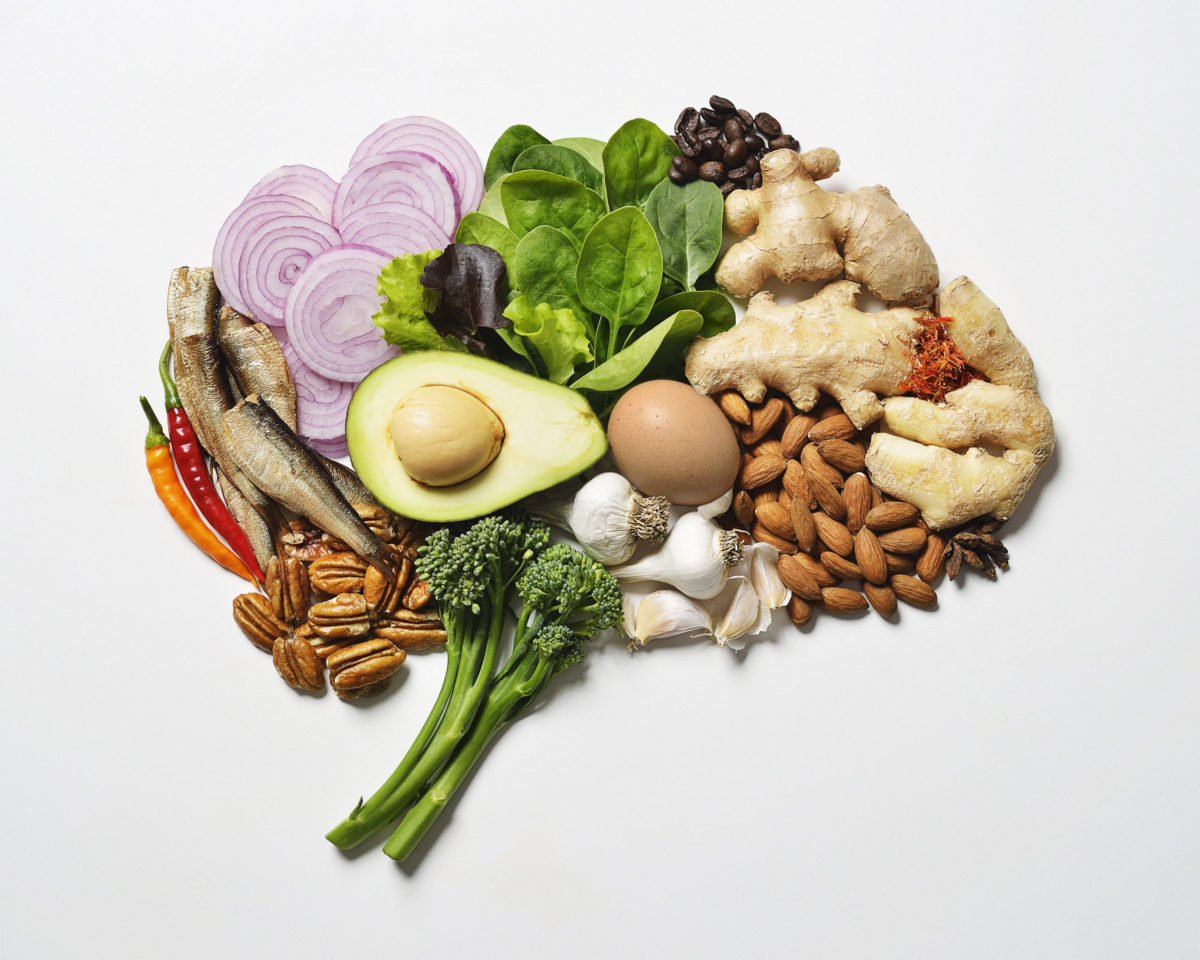Did you know your brain alone uses more than 20% of the calories you consume? It’s one reason healthy eating is essential for memory, mood and focus, says Erica Fleming, registered dietitian at BlueCross BlueShield of Tennessee.
“When we eat foods that are rich in vitamins, minerals and antioxidants, those components keep us feeling nourished and refreshed, and that applies to the brain,” says Fleming. “Refined and processed foods that contain high amounts of sodium, sugars and preservatives, on the other hand, can make us feel listless and depressed.”
What aspects of brain function does food affect?
Mood and focus
Fleming: Mood and the ability to focus are the most obvious functions that food affects. Foods that are refined and processed may give us a short burst of energy. But over an hour or two, blood sugar levels will drop. That makes it difficult for us to focus and can lead to a drop in mood. This is why we encourage people to eat a nutritious breakfast containing whole grains, lean protein and fresh produce rather than sugary cereals or pastries. That way you’re getting something substantial to fuel your mind and your body until lunch.
Why does it matter if foods are refined or processed?
Fleming: Let’s use grain as an example. When grain is refined, most of the bran and germ are removed, leaving the simple starch (carbohydrate) that is easily digested. By processing a whole grain, you strip the parts that contain most of the B vitamins, iron and fiber, which leaves you with a less nutritious product. Simple starches are absorbed in the gut more quickly. So, eating processed or refined foods can make some people more prone to developing chronic inflammation and weight-related diseases such as diabetes, hypertension and obesity.
Whole grain guide: Breaking down grains, oats, rice, meals & more
Memory
Fleming: Memory is the other brain function that’s often affected by food, though it’s more of a long-term effect. If we’re not eating foods that protect our brain, over time memory may suffer.
Research shows that processes in the body that lead to serious illness begin years before symptoms appear. One of these processes is the chronic inflammation of brain cells and blood vessels. This happens when our bodies break down unhealthy foods. If inflammation isn’t counteracted by antioxidants and healthy dietary choices, it can lead to:
- Cardiovascular disease
- Stroke, and
- Degenerative brain diseases such as Alzheimer’s and dementia.
What effect does excess sugar have on brain function?
Fleming: Sugar-sweetened foods and drinks that lack nutrients are rapidly absorbed by the gut. This can cause a surge of insulin (the hormone that helps regulate blood glucose), into the bloodstream. In this instance, the energy contained in the food may not reach the cells as intended.
If the energy we ingest isn’t used immediately as fuel. It’s stored as glycogen or converted into body fat. This can lead to weight gain, obesity and diabetes — all of which negatively impact brain function as well as overall health. Excess sugar in the bloodstream also contributes to inflammation. This can lead to the conditions we mentioned earlier that impact memory: heart disease, including stroke, and degenerative brain diseases.
What foods can help to boost brain function?
Fleming: Vegetables and fruits are natural energy and brain boosters. This is because they contain vitamins, minerals and water, which keeps cells refreshed and hydrated. They also contain fiber and quercetin. This is an antioxidant that helps your body reduce inflammation caused by free radicals, which can lead to chronic diseases.
Because fiber and quercetin take longer to digest, they:
- Keep us feeling full and satisfied for longer periods of time.
- Help manage cholesterol by limiting plaque buildup in blood vessels.
- Contribute to maintaining a healthy weight.
Plus, plant fiber is good for the microbacteria in our gut. This helps our immune system fight infections and may help our brain regulate mood and thinking.
To boost brain function, try eating:
- Vegetables
- Fruits
- Nuts
- Seeds
- Whole grains
- Legumes
What foods have a negative effect on brain function?
Fleming: Foods that are high in sodium, sugar and unhealthy fats tend to deplete energy levels more quickly. A food that doesn’t contain a lot of nutrients can make us feel good for a couple of minutes or hours. But it often leads to a “crash” that leaves our brain feeling foggy and leaves us feeling irritable or simply exhausted.
To avoid these effects, eat fewer:
- Cookies
- Cake
- Candy
- Soda
- White pasta and rice
- Foods that are high in salt
- Processed oils and fats
- Foods with chemical additives and preservatives
Fat facts: Decoding the difference between mono, poly, trans & saturated fats
Any tips for boosting brain function with food?
Fleming: If you think a certain food or drink may be affecting your brain function or energy, try an elimination diet. Pick one thing — sugar, sodium, processed foods, caffeine — and cut back or eliminate it from your diet for at least 10 to 14 days. If you feel better and experience clearer thinking, consider limiting/restricting foods and drinks containing that ingredient.
If you’re looking for a way to apply brain-boosting principles broadly to what you eat, try the Mediterranean Diet. It’s packed with plant proteins, healthy fats and foods that are proven to help with inflammation. Plus, it’s intended to be utilized for a lifetime — a crucial feature for any healthy and successful way of eating.
Complete guide to the Mediterranean diet
Get more information about specific health terms, topics and conditions to better manage your health on bcbst.com. BlueCross BlueShield of Tennessee members can access wellness-related discounts on fitness products, gym memberships, healthy eating and more through Blue365®. BCBST members can also find tools and resources to help improve health and well-being by logging into BlueAccess and going to the Managing Your Health tab.


